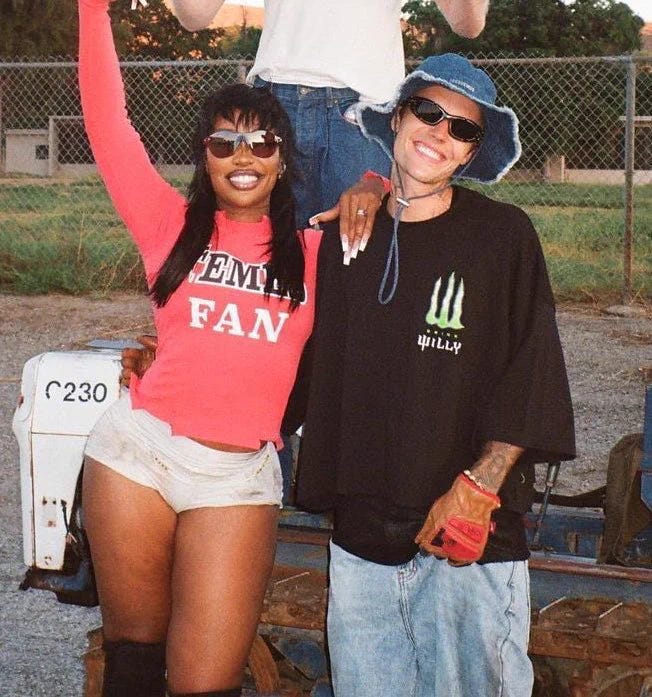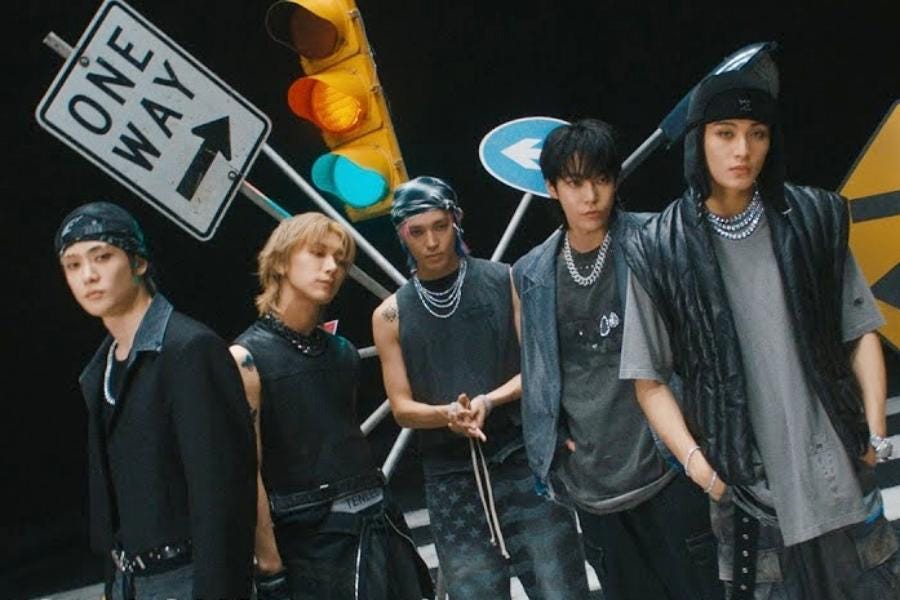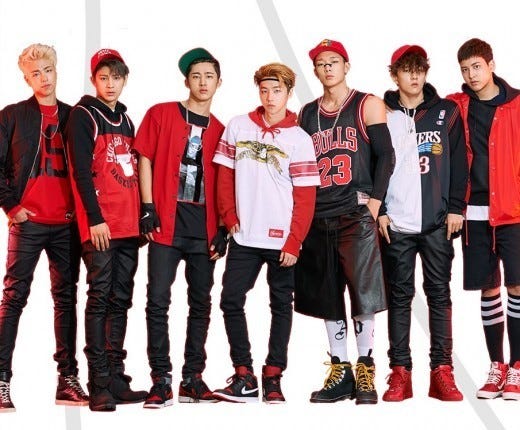Reflection: Lightskin Bieber, K-pop, and Black Aesthetics
Op-ed on why mimicry is hurting K-pop
When SZA’s music video for “Snooze” was released on Friday, August 25, I didn’t expect what I saw. Social media raved about the male “video vixens” that played her love interests, including Young Mazino, Woody McClain, a robot, Benny Blanco, and Justin Bieber. Bieber’s appearance caused a wave of people raving about him online, because, yes, it did seem random. It reminded me of his appearance in “Popstar ” by DJ Khaled and Drake, a song where he was also shouted out with the lyric, “Shit don’t usually get this big without a Bieber face.” Justin Bieber is very famous, but watching him in these videos for Black artists brought up another idea to me in relation to the K-pop industry.
Many K-pop stars look up to Western celebrities, but stars like Usher, Chris Brown, and Justin Bieber are often mentioned as inspirations for a good chunk of them. These artists are all multitalented and have eras of hits while dancing, singing, and being certified heartthrobs. K-pop takes these same elements of performance but puts them into groups, hoping to emulate the same devotion in their fanbases while expanding the hallyu wave globally. Black music is the initial inspiration for K-pop, and naturally, the idols gravitate towards artists who have mastered these skills and the inherent swagger common in Black communities.
What the Korean music industry gets wrong, in my humble opinion, is the lack of authenticity. K-pop often feels like a mimicry of stereotypical Black culture rather than an authentic or immersed portrayal of it. But who’s surprised? Sure, Black songwriters and producers are often hired for the composition of songs, but the idols are often not interacting directly with Black people. Idols are trained for years to be perfect in their homogenized environments, but charisma, swag, and the “it” factor can’t be taught through a screen.
What Justin Bieber has is years of mentorship, friendship, and immersion in Black music and culture that these idol companies seem to not value. There are exceptions. For example, BTS came to America early on in their careers to learn directly from hip-hop heads in LA on “American Hustle Life”, but that is far from the norm. Often, the idols or Korean artists who have authentic connections to the culture, like Dean or CL, have lived abroad and sought it out themselves. Both artists have gotten co-signs from major American celebrities, and people like Zendaya and Justin himself have shouted out Dean. That’s something most artists in the Korean industry can only hope for.
Issues of appropriation, stereotyping, and racism in the Korean industry are a whole separate topic, but it would definitely behoove the industry to change some of their tactics if they hope to expand to Western markets with large BIPOC audiences. People can smell lack of authenticity from a mile away, and real artists are needed more than untouchable idol figureheads who can’t even date without criticisms. Sure, it’s another country and culture, and that’s fine, but real recognizes real, and I guarantee if some changes were made it would actually benefit the artists more than they know. Black Americans are a hard market to crack for non-Black people, it takes real trust from the community to let an outsider in, but it’s worth it because Black people are huge consumers. A good example of finding a way in is when BTS’s Jungkook ended up on TheShadeRoom because he collaborated with Latto. That said, you can probably count the amount of non-Black rappers on your hands who have stayed relevant over the years. Yeah, exactly.
Sure, idols can throw on their chains and grills, say “yo, yo, yo” when rehearsed, or recite rap lyrics given to them by writers. They are performers after all. No one’s denying the talent and dedication to the craft many of them have: they’re playing characters. They have their hip-hop concepts and samples, their knowledge of popular rap songs, etc. They’re fans of the culture, outsiders looking in with no real way in. They study the Black aesthetic but don’t live it. It’s like learning a language. The person who lives abroad and practices Korean will be a lot more fluent than the person who aced their classes but never goes beyond the textbook and flashcards.
There are so many slip-ups that expose how unreal it is, and who knew JB would be the one to help drive the point home for me. No one’s saying any of these people are saints, but you just can’t deny the differences in approach. “Lightskin Bieber” is a trend online, there’s playlists of songs, like his entire Journals album, which are clear immersions of the culture or where he taps into this version of himself. It makes sense.
When I saw Justin’s lip bite and smirk while looking at SZA in the music video, a moment that had a lot of people talking online, it clicked for me. My disillusionment with K-pop makes sense when compared to these sorts of moments, the ones that can’t be rehearsed or taught. Anyone can plan a hip thrust or lip bite on cue, but will it hit the same? For me and other women who grew up with talented R&B, hip-hop, and pop stars who had the it-factor, well, no. The corniness may be cute to some, everyone has their own tastes and the Asian music market has very different expectations than the West, but for me, a Black girl whose first musical love was MJ and first concert was J.Cole, it simply falls flat.







The way this was written, just wow. Honestly even gave me a few think pieces
This is so spot on!! Everything I’ve been thinking put into words.